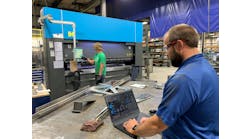Give clients what they need, not just what they say they want
In a pivotal scene in the now-ancient, nerd-classic movie Star Wars, self-serving and detached smuggler and fugitive Han Solo makes a U-turn and flies to the aid of idealistic and young Luke Skywalker and his noble quest. Fans are delighted by his reversal from mercenary to hero of the revolution. We like it when the “I’m just in it for myself; when I’m paid, I’m on my way” gunslinger turns out to have morals and values, and comes to the rescue of the struggling and otherwise doomed “good guys.” It’s interesting how the entertainment industry recycles this theme repeatedly.
While the struggles of an instrument engineer, technician or consultant may seem mundane by comparison, do you find yourself pining for this sort of passion in our endeavors? Maybe not.
When upstream hydrocarbons were booming, any passion one might have had for precision, maintainability or lifecycle costs was railroaded by the get-out-of-the-way-quick, here-comes-the-oil/gas/hydrocarbons train of values—that was the zeitgeist. We can hardly blame consultants and the vendor community for seeking to cash in on this bonanza of spending. And surely, it appears the oil does flow despite any artistry or lack thereof on the part of the I&C team. When you’re “infrastructure” and therefore a necessary evil, who wouldn’t be challenged to resist becoming a cynical mercenary and abandoning any idealistic pursuits? Why not just do what you’re told: the pay is the same, as they say, and no one was ever fired for doing what we always did.
Today, our challenge is different: to get value from the Industrial Internet of Things (IIoT), for example, and this creates a problem for our thinning ranks, the current generation of controls professionals. The role of controls specialist is increasingly filled by contractor or consultant. The role of systems engineer or instrumentation specialist is relegated to vendors, third-party providers and/or an additional role or “hat” for an already overburdened process specialist.
Consider how well the third-party provider model is working for IT. Specialists from several time zones, if not continents, away have no connection or accountability to their customers, have vague interest or understanding of their customers’ needs or infrastructure, and follow convention without any creativity. And most annoyingly, these folks seem to lack any professional ethic to “make it right” or determination to stamp out the issues perplexing their customers and diminishing their productivity. As we continue to thin the ranks of process control professionals, what happens to the process plant—the operate-and-maintain folks? Will the IT model of service become the norm for process control?
So, every time I read about the convergence of IT and OT, I wonder, are we converging, or does management think it’s all the same because we all use computers and networks? When the controls people have died off, we’ll just write a ticket for IT?
“Mercenary” has a tinge of negativity, and when we don it ourselves, we're typically declaring a degree of independence from the clients we serve and a detachment from any investment in their longer-term goals. It can lead to a work life where we suspend any critical thought and just follow rote dogma—do what the client says he or she wants. This is great for expedience, but critical thought is essential to achieving timely and insightful understanding (and robust control) of complex processes. So how do we summon commitment and passion when our client’s direction or choices are befuddling?
To fend off mercenary attitudes, it can help to escape the isolation of one’s cubicle and get in touch with the individuals impacted by our work. It’s the relationship to our end users that can differentiate us from the dysfunctional IT prototype, so succinctly captured by Dilbert’s “Mordac, Preventer of Information Services.” It's the operate-and-maintain folks who give purpose to our profession, and it’s their labor to manage an enterprise profitably and safely that pays the bills. Maybe compassion for our ultimate client will help Han Solo of the DCS think twice, and sacrifice for the cause of Luke and Leia.




